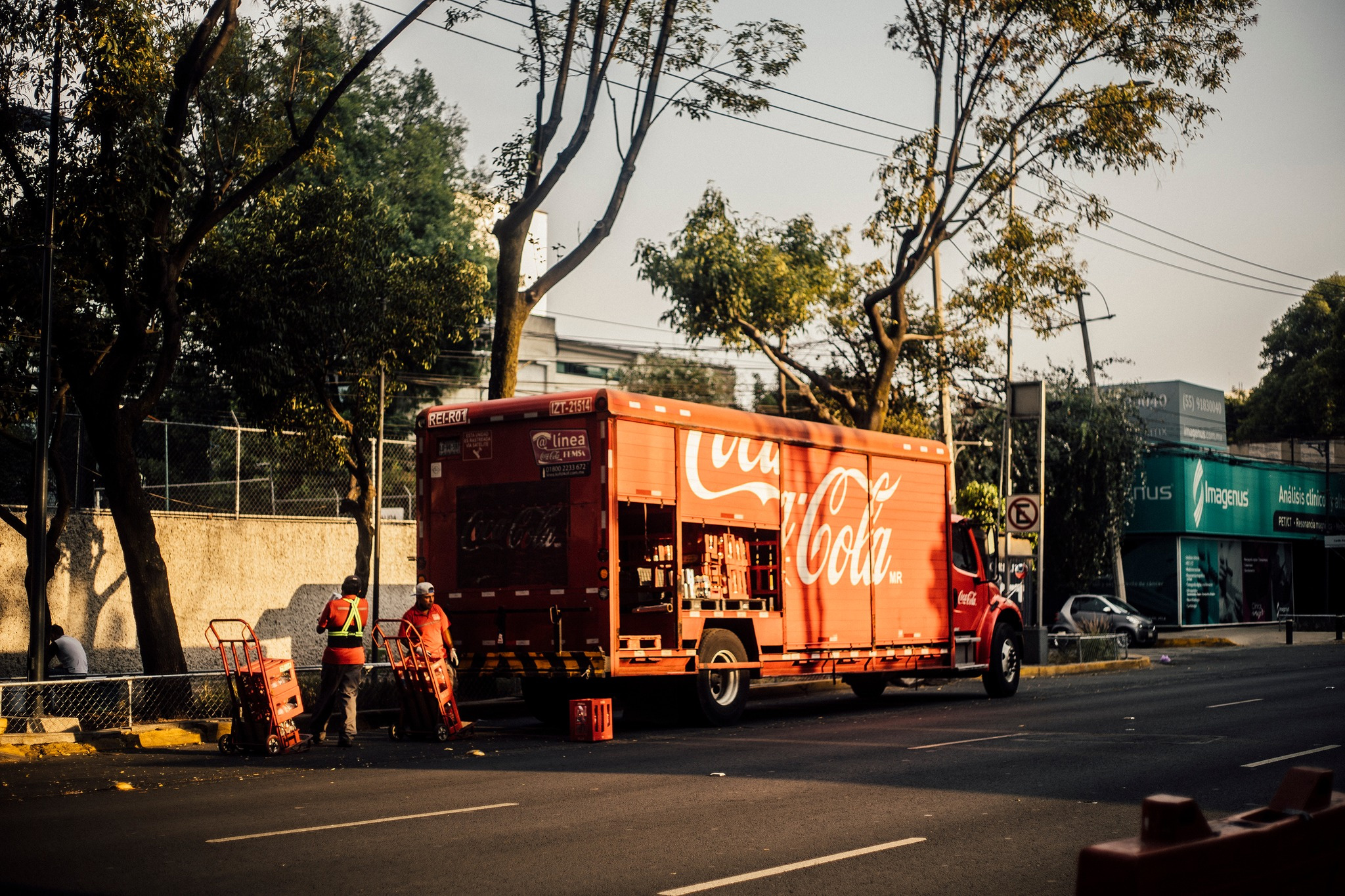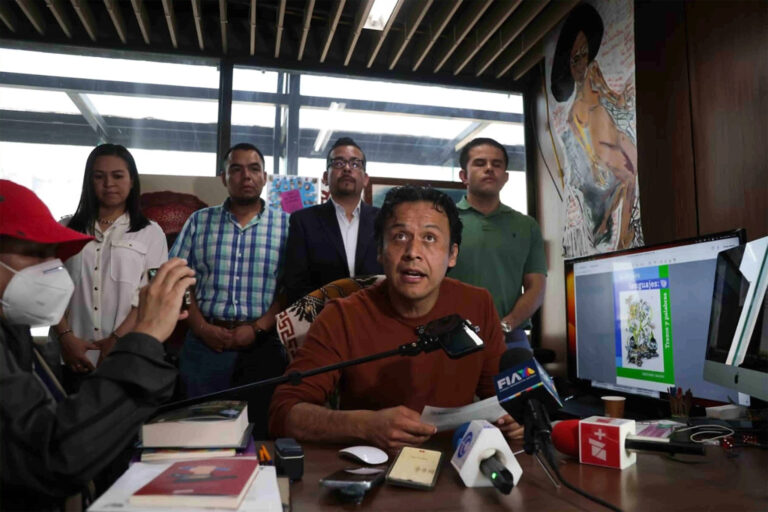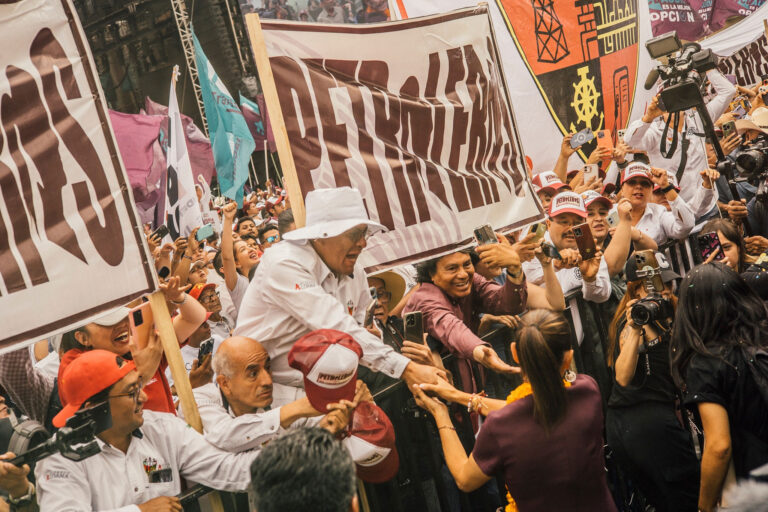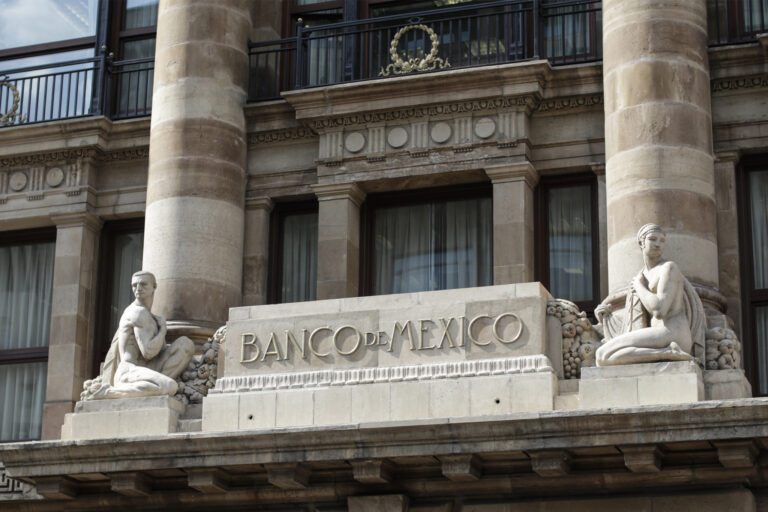A Cup of Pure Junk
This article by Montserrat Antúnez first appeared in the July 13, 2025 edition of Sin Embargo.
Mexico City, Monterrey, and Guadalajara will host the 2026 FIFA World Cup, along with cities in the United States and Canada. Among the tournament’s sponsors are junk food, soft drink, and alcohol brands, whose consumption is associated with the diabetes and hypertension epidemics in Mexico, leading organizations to question their continued association with sporting events.
Mexico City. Companies that sell products harmful to health are among the sponsors of the 2026 World Cup , which Mexico will host. An international campaign exposes this contradiction and has asked the International Federation of Football (FIFA) to exclude industries such as soft drinks and other sugary beverages.
Coca-Cola, Lay’s, and McDonald’s, which sell junk food, as well as Diageo, the alcoholic beverage distributor , are among the sponsors of the 2026 World Cup, despite the fact that consumption of their products is associated with the epidemics of diabetes, hypertension, and other diseases affecting the Mexican population.
“We’re calling for people not to promote unhealthy products through sports. Seeing such an admired, respected, and beloved figure promoting a product also improves the perception of that product, and soft drink companies, for example, know this, which is why they’re getting closer to sports. Football in particular has a strong following and a very large fan base, which helps them build brand loyalty.”
“The problem arises when the product in question—in this case, a soft drink, a sugary beverage—generates other negative externalities, other harms, such as damage to health and the environment, both from water extraction, which is a serious problem in the southeast of Mexico, and from plastic pollution, which is a global problem,” explained Ana Larrañaga, a researcher at El Poder del Consumidor.
That organization, experts, and global public health advocates are part of the “Kick Big Soda Out of Sport” campaign , which calls on FIFA to end its partnership with Coca-Cola for using sport to whitewash its image and thus cover up the harm its products cause to health and the environment, which goes against the football federation’s announced commitments.
Mexico tops the list of the 30 most populous countries in the world with the highest number of new cases of diabetes attributable to the consumption of soft drinks and other sugary beverages. In the country, it is estimated that one in three new cases of diabetes is due to the consumption of sugary drinks, according to research published in January of this year in the scientific journal Nature Medicine.
In this context, public health organizations are concerned about the soft drink industry’s promotion, for example, through the campaign Coca-Cola has been running for weeks to give away tickets to the World Cup. The company’s sponsorship of the sporting event began in 1974, but since 1950 it has displayed advertising in World Cup stadiums. In Mexico, the company markets soft drinks such as Coca-Cola, Fanta, Sprite, Monster, and Jugos del Valle, beverages with excessive sugar and harmful additives.
Likewise, the soft drink company has been accused of damaging the environment through the extraction of millions of liters of water and the production of single-use plastics. Recently, the Mexico City government announced it had reached an agreement with Coca-Cola to take responsibility for the plastic pollution it generates during the World Cup by constructing bottle-based furniture for the capital, in addition to holding Fan Fest events in city halls.
“We are going to work with one of the largest soft drink sponsors [Coca-Cola] to turn all the bottles generated at the [Azteca] stadium, the FIFA Fan Fest, and the football festivals into public furniture, furniture for the Utopías, the tourist information modules, children’s games… We are designing different prototypes for this, so there is a very direct commitment to this. As sponsors, they are also going to help us with the children’s tournament by offering water, not promoting soft drinks, because this consumption is not encouraged among minors,” explained Alejandra Frausto, Secretary of Tourism for Mexico City, in an interview with Los Periodistas, a program on SinEmbargo Al Aire.
In addition to the damage to health, local governments are the ones who actually bear the costs of waste management in agreements with large multinationals and sporting events.
Researcher Ana Larrañaga mentioned the importance of making agreements transparent by authorities to assess whether these partnerships result in more costs for citizens than benefits, since, she said, in addition to the damage to health, local governments are the ones who actually bear the costs of waste management.
Another World Cup sponsor is Lay’s, a US subsidiary of PepsiCo, which sells salty snacks in Mexico such as Fritos, Cheetos, Fritos, and Doritos, identified by the Ministry of Health with labels for excessive sodium, calories, and saturated fats. Furthermore, it is one of the brands exposed in a recent Public Eye study for using a double standard, as it uses harmful synthetic colorants in products sold in Mexico, but not in the same products it distributes in Europe.

The fast-food chain McDonald’s is also sponsoring the 2026 World Cup. In 2017, the agreement between the company and the International Olympic Committee ended, although it was due to expire in 2020. McDonald’s argued that this was a decision in line with its global growth plan, but it had a history of receiving constant criticism from public health groups because its offerings have nothing to do with health and sports.
Alcohol and the 2026 World Cup
Consumer Power also warns that the alcohol industry is promoting the World Cup because its consumption is associated with chronic illnesses and conditions, such as high blood pressure, heart disease, stroke, liver disease, digestive problems, and various types of cancer.
The 2026 World Cup will be sponsored by Diageo, the company that distributes alcoholic beverages in Mexico such as Johnnie Walker and Buchanans whiskeys, Don Julio Tequila, Smirnoff vodka, and Bailey’s liqueur, even though consuming these products is linked to health risks.
Until the 1980s, the Olympic Games were sponsored by the tobacco industry, a move that was later banned thanks to public demands and the discovery that smoking causes cancer. Therefore, Larrañaga emphasized the importance of not normalizing the association of alcohol and other harmful products, such as sugary drinks and junk food, with sports.
“Alcohol and sports are not compatible. It’s not impossible. Sponsorship [of certain products] has been removed in previous years, and its consumption and association with sports have been denormalized. Just as today we say, ‘How strange it would be to see a football player who’s been running for an entire game smoking half a pack before starting to run.’ We also need to question the fact that they’re not drinking beer before going out for a run, nor are they drinking half a liter of soda right before going out for a run, yet they are promoting it to us. What’s going on there?”
-
A Circus at Mexico’s Education Secretariat
The dispute is not a fight for the defense of public education, but a brawl between rival power groups for control and the collection of political rents from a pedagogical project that has not yet been born.
-
A Bigger Plan
López Obrador’s fear of Mexico’s abrupt return to the right still applies today. The Brazilian case is instructive.
-
Mexico Needs a Macroeconomic Policy for Growth, not the Finance Sector
While the Mexican government attempts to curry favour to receive preferential treatment in USMCA negotiations, it ignores the fact that the Trump administration violates all established international norms and makes decisions only based on US interests.




